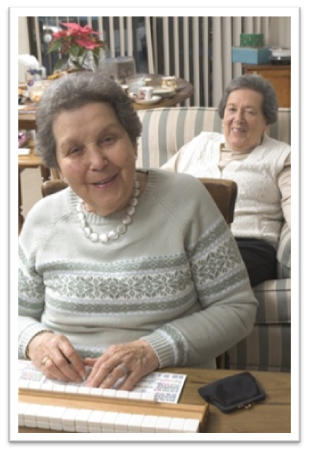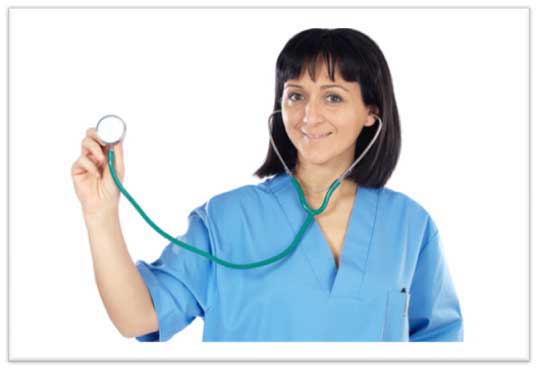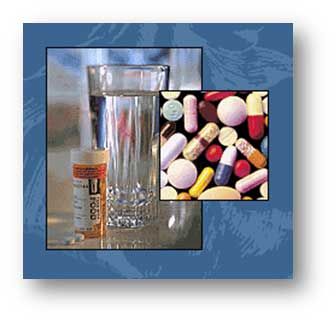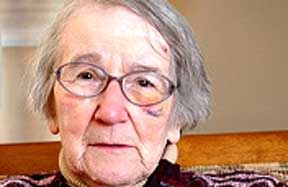 Regulations
Regulations Regulations
RegulationsObjective: Demonstrate knowledge of applicable state and federal regulations.
This tag outlines the scope of social services to be provided by the facility. The entire text of Tag F250 is discussed below.
F250
§483.15(g)(1) The facility must provide medically-related social services to attain or maintain the highest practicable physical, mental, and psychosocial well-being of each resident.
The Omnibus Budget Reconciliation Act (OBRA) of 1987 requires SNFs (skilled nursing facilities) to provide "medically-related social services to attain or maintain the highest practicable physical, mental and psychosocial well-being of each resident" and specifies that "the services provided or arranged by the facility must meet professional standards of quality." This law applies to all residents within the federally certified SNFs.
The OBRA 1987 further states that when any federally-certified nursing facility has over 120 beds, the facility is required to employ, on a full-time basis, a minimum of one social worker. Federal regulations state that this social worker must have at least a bachelors degree in social work, or in another human services field, and 1 year of supervised social work experience in a health care setting working directly with individuals. For facilities that have 120 beds or less, medically-related social services must still be provided. However, there is no specific requirement that they be performed by a qualified social worker.(this is when most facilities hire a Social Worker Designee)
The OBRA 1987 also mandates that each nursing home resident have a comprehensive initial resident assessment, as well as periodic assessments using a standard form called the Minimum Data Set (MDS). Under Medicare payment rules, the Centers for Medicare & Medicaid Services (CMS) requires that a 5-day, 14-day, 30-day, and 60-day MDS be completed for all residents. These assessments include psychosocial assessment indicators that guide the preparation and maintenance of psychosocial-related care plans for each resident. Ideally, all identified psychosocial needs are addressed in a care plan, and for all care plans developed, there is documentation that all services are provided.
Intent §483.15(g)
To assure that sufficient and appropriate social services are provided to meet the resident’s needs.
Interpretive Guidelines §483.15(g)(1)
Regardless of size, all facilities are required to provide for the medically related social services needs of each resident. This requirement specifies that facilities aggressively identify the need for medically-related social services, and pursue the provision of these services. It is not required that a qualified social worker necessarily provide all of these services. Rather, it is the responsibility of the facility to identify the medically-related social service needs of the resident and assure that the needs are met by the appropriate disciplines.
“Medically-related social services” means services provided by the facility’s staff to assist residents in maintaining or improving their ability to manage their everyday physical, mental, and psychosocial needs. These services might include:
Factors with a potentially negative effect on physical, mental, and psychosocial well being include an unmet need for:
Where needed services are not covered by the Medicaid State plan, nursing facilities are still required to attempt to obtain these services. For example, if a resident requires transportation services that are not covered under a Medicaid state plan, the facility is required to arrange these services. This could be achieved, for example, through obtaining volunteer assistance.
Types of conditions to which the facility should respond with social services by staff or referral include:
Probes: §483.15(g)(1)
For residents selected for a comprehensive or focused review as appropriate:
Look for evidence that social services interventions successfully address residents’ needs and link social supports, physical care, and physical environment with residents’ needs and individuality.
For sampled residents, review MDS, section H.
Listed below you will find an example of state regulations that is pertinent to the Social Service Designee (specifics are in bold italics). It is important you find and read these regulations for your specific state.
DEFINITIONS
26-39-100. Definitions.
The following terms and definitions shall apply to all of the department’s regulations
governing adult care homes:
 (a) "Activities Director" means an individual who meets at least one of the following
(a) "Activities Director" means an individual who meets at least one of the following
requirements:
(b) "Administrator" means an individual who is responsible for the general
administration of an adult care home, whether or not the individual has an ownership interest in
the adult care home. Each administrator of an adult care home shall be licensed in accordance
with K.S.A. 65-3501 et seq. and amendments thereto.
(c) "Adult care home" has the meaning specified in K.S.A. 39-923 and amendments
thereto.
(d) "Adult day care" has the meaning specified in K.S.A. 39-923 and amendments
thereto.
(e) "Advanced registered nurse practitioner" means an individual who is certified by the
Kansas board of nursing as an advanced registered nurse practitioner.
(f) "Alteration" means any addition to, modification of, or modernization of the structure
or usage of a facility.
(g) "Ambulatory resident" means any resident who is physically and mentally capable of
performing the following without the assistance of another person:
(h) “Applicant” means any individual, firm, partnership, corporation, company,
association, or joint stock association requesting a license to operate an adult care home.
(i) "Assisted living facility" has the meaning specified in K.S.A. 39-923 and
amendments thereto.
(j) "Audiologist" means an individual who is licensed by the Kansas department of
health and environment as an audiologist.
(k) "Basement" means the part of a building that is below grade.
(l) “Biologicals” means medicinal preparations made from living organisms and their
products, including serums, vaccines, antigens, and antitoxins.
(m) "Boarding care home" has the meaning specified in K.S.A. 39-923 and amendments
thereto.
(n) “Case manager” means an individual assigned to a resident to provide assistance in
access and coordination of information and services in a program authorized by the Kansas
department on aging, the Kansas department of social and rehabilitation services, or the Kansas
health policy authority.
(o) “Change of ownership” means any transaction that results in a change of control over
the capital assets of an adult care home.
(p) “Chemical restraint” means a medication or biological that meets the following
conditions:
(q) "Clinical record" means the record that includes all the information and entries
reflecting each resident's course of stay in an adult care home.
(r) “Complicated feeding problems” shall include difficulty with swallowing, recurrent
lung aspirations, and tube, parenteral, or intravenous feedings.
(s) "Controlled substance" means any medication, substance, or immediate precursor
included in any of the schedules designated in K.S.A. 65-4105, K.S.A. 65-4107, K.S.A. 65-4109,
K.S.A. 65-4111, and K.S.A. 65-4113, and amendments thereto.
(t) "Day shift" means any eight-hour to 12-hour work period that occurs between the
hours of 6 a.m. and 9 p.m.
(u) "Department" means the Kansas department on aging.
(v) "Dietetic services supervisor" means an individual who meets one of the following
requirements:
(w) "Dietitian" means an individual who is licensed by the Kansas department of health
and environment as a dietitian.
(x) "Direct care staff" means the individuals employed by or working under contract for
an adult care home who assist residents in activities of daily living. These activities may include
the following:
 (y) "Director of nursing" means a position in a nursing facility or a nursing facility for
(y) "Director of nursing" means a position in a nursing facility or a nursing facility for
mental health that is held by one or more individuals who meet the following requirements:
(z) "Full-time" means 35 or more hours each week.
(aa) "Health information management practitioner" means an individual who is certified
as a registered health information administrator or a registered health information technician by
the American health information management association.
(bb) "Home plus" has the meaning specified in K.S.A. 39-923 and amendments thereto.
(cc) "Interdisciplinary team" means the following group of individuals:
(dd) “Intermediate care facility for the mentally retarded” has the meaning specified in
K.S.A. 39-923 and amendments thereto.
(ee) "Legal representative" means an agent acting within the bounds of the agent’s legal
authority who meets any of the following criteria:
(ff) "Licensed mental health technician" means an individual licensed by the Kansas
board of nursing as a licensed mental health technician.
(gg) "Licensed nurse” means an individual licensed by the Kansas board of nursing as a
registered professional nurse or licensed practical nurse.
(hh) "Licensed practical nurse" means an individual who is licensed by the Kansas board
of nursing as a licensed practical nurse and is supervised by a registered professional nurse, in
accordance with K.S.A. 65-1113 and amendments thereto.
(ii) "Licensee" means an individual, firm, partnership, association, company,corporation, or joint stock association authorized by a license obtained from the secretary of
aging to operate an adult care home.
(jj) “Medical care provider” means any of the following individuals:
 (kk) "Medication" means any “drug” as defined by K.S.A. 65-1626 and amendments
(kk) "Medication" means any “drug” as defined by K.S.A. 65-1626 and amendments
thereto.
(ll) "Medication administration" means an act in which a single dose of a prescribed
medication or biological is given by application, injection, inhalation, ingestion, or any other
means to a resident by an authorized person in accordance with all laws and regulations
governing the administration of medications and biologicals. Medication administration shall
consist of the following:
(mm) "Medication aide" means an individual who has a medication aide certificate
issued by the Kansas Department of Dealth and Environment according to K.A.R. 28-39-169b and
is supervised by a licensed nurse.
(nn) "Medication dispensing" means the delivery of one or more doses of a medication
by a licensed pharmacist or physician. The medication shall be dispensed in a container and
labeled in compliance with state and federal laws and regulations.
(oo) "Non-ambulatory resident" means any resident who is not physically or mentally
capable of performing the following without the assistance of another person:
(pp) "Nurse aide" means an individual who has a nurse aide certificate issued by the
Kansas department of health and environment according to K.A.R. 28-39-165 and is supervised
by a licensed nurse.
(qq) "Nurse aide trainee" means an individual who is in the process of completing a
nurse aide training program as specified in K.A.R. 28-39-165 or K.A.R. 28-39-167 and has not
been issued a nurse aide certificate by the Kansas department of health and environment.
(rr) "Nursing facility" has the meaning specified in K.S.A. 39-923 and amendments
thereto.
(ss) "Nursing facility for mental health" has the meaning specified in K.S.A. 39-923 and
amendments thereto.
(tt) "Nursing personnel" means all of the following:
(uu) "Nursing unit” means a distinct area of a nursing facility serving not more than 60
residents and including the service areas and rooms described in K.A.R. 28-39-162a.
(vv) "Occupational therapist" means an individual who is licensed with the Kansas board
of healing arts as an occupational therapist.
(ww) "Occupational therapy assistant" means an individual who is licensed by the
Kansas board of healing arts as an occupational therapy assistant.
(xx) “Operator” has the meaning specified in K.S.A. 39-923 and amendments thereto.
(yy) “Paid nutrition assistant” has the meaning specified in K.S.A. 39-923 and
amendments thereto. In addition, each paid nutrition assistant shall meet the following
requirements:
(zz) “Personal care” means assistance provided to a resident to enable the resident to
perform activities of daily living, including ambulating, bathing, bed mobility, dressing, eating,
personal hygiene, toileting, and transferring.
(aaa) “Pharmacist” has the meaning specified in K.S.A. 65-1626 and amendments
thereto.
(bbb) "Physical restraint" means any method or any physical device, material, or
equipment attached or adjacent to the resident's body and meeting the following criteria:
(ccc) "Physical therapist” means an individual who is licensed by the Kansas board of
healing arts as a physical therapist.
(ddd) "Physical therapy assistant" means an individual who is certified by the Kansas
board of healing arts as a physical therapy assistant.
(eee) "Physician" has the meaning specified in K.S.A. 65-28,102 and amendments
thereto.
(fff) "Psychopharmacologic drug" means any medication prescribed with the intent of
controlling mood, mental status, or behavior.
(ggg) "Registered professional nurse” means an individual who is licensed by the Kansas
state board of nursing as a registered professional nurse.
(hhh) “Resident” has the meaning specified in K.S.A. 39-923 and amendments thereto.
(iii) “Resident capacity” means the number of an adult care home’s beds or adult day
care slots, as licensed by the Kansas department on aging.
(jjj) "Respite care" means the provision of services to a resident on an intermittent basis
for periods of fewer than 30 days at any one time.
(kkk) “Restraint” is the control and limitation of a resident’s movement by physical,
mechanical, or chemical means.
(lll) “Sanitization" means effective bactericidal treatment by a process that reduces the
bacterial count, including pathogens, to a safe level on utensils and equipment.
(mmm) “Secretary” means the secretary of the department on aging.
(nnn) "Self-administration of medication" means the determination by a resident of when
to take a medication or biological and how to apply, inject, inhale, ingest, or take a medication or
biological by any other means, without assistance from nursing staff.
(ooo) "Significant change in condition" means a decline or improvement in a resident's
mental, psychosocial, or physical functioning that requires a change in the resident's
comprehensive plan of care or negotiated service agreement.
(ppp) "Social services designee" means an individual who meets at least one of the
following qualifications:
(qqq) "Social worker" means an individual who is licensed by the Kansas behavioral
sciences regulatory board as a social worker.
(rrr) "Speech language pathologist” means an individual who is licensed by the Kansas
department of health and environment as a speech-language pathologist.
(sss) “Working day” means any day other than a Saturday, Sunday, or day designated as
a holiday by the United States congress or the Kansas legislature or governor.
(Authorized by K.S.A. 39-932; implementing K.S.A. 2008 Supp. 39-923 and K.S.A. 39-
932; effective May 22, 2009.)
QUALITY OF LIFE
28-39-153. Quality of life.
Each nursing facility shall care for its residents in a manner and in an environment that
promotes maintenance or enhancement of each resident's quality of life.
(a) Dignity. Each facility shall promote respect of each resident and shall fully recognize
each resident's individuality.
(b) Self-determination and participation. The nursing facility shall afford each resident
the right to:
(c) Participation in resident and family groups.
(d) Participation in other activities. The nursing facility shall afford each resident the
right to:
(e) Activities.
(f) Social services.
(Authorized by and implementing K.S.A. 39-932; effective Nov. 1, 1993; amended Feb.
21, 1997.)
The Survey Process
Things to remember about the survey:
Elder Abuse
Every year, tens of thousands of elderly Americans are abused in their own homes, in relative’s homes, and even in facilities responsible for their care. You may suspect that an elderly person you know is being harmed physically or emotionally by a neglectful or overwhelmed caregiver or being preyed upon financially. By learning the signs and symptoms of elder abuse and how to act on behalf of an elderly person who is being abused, you'll not only be helping someone else but strengthening your own defenses against elder abuse in the future.
As elders become more physically frail, they're less able to stand up to bullying and or fight back if attacked. They may not see or hear as well or think as clearly as they used to, leaving openings for unscrupulous people to take advantage of them. Mental or physical ailments may make them more trying companions for the people who live with them.
Tens of thousands of seniors across the United States are being abused: harmed in some substantial way, often by people who are directly responsible for their care. More than half a million reports of abuse against elderly Americans reach authorities every year, and millions more cases go unreported.
Where does elder abuse take place?
Elder abuse tends to take place where seniors live: most often in the home where abusers are apt to be adult children, other family members such as grandchildren, or spouses/partners of elders. Institutional settings, especially long-term care facilities, can also be sources of elder abuse.
The Different Types of Elder Abuse
Abuse of the elderly takes many different forms, some involving intimidation or threats against the elderly, some involving neglect, and others involving financial chicanery. The most common are defined below.
 Physical abuse
Physical abuse
Physical elder abuse is non-accidental use of force against an elderly person that results in physical pain, injury, or impairment. Such abuse includes not only physical assaults such as hitting or shoving but the inappropriate use of drugs, restraints, or confinement.
Emotional abuse
In emotional or psychological senior abuse, people speak to or treat elderly persons in ways that cause emotional pain or distress.
Verbal forms of emotional elder abuse include:
Nonverbal psychological elder abuse can take the form of:
Sexual abuse
Sexual elder abuse is contact with an elderly person without the elder's consent. Such contact can involve physical sex acts, but activities such as showing an elderly person pornographic material, forcing the person to watch sex acts, or forcing the elder to undress are also considered sexual elder abuse.
Neglect or abandonment by caregivers
Elder neglect, failure to fulfill a caretaking obligation, constitutes more than half of all reported cases of elder abuse. It can be active (intentional) or passive (unintentional, based on factors such as ignorance or denial that an elderly charge needs as much care as he or she does).
 Financial Exploitation
Financial Exploitation
This involves unauthorized use of an elderly person's funds or property, either by a caregiver or an outside scam artist.
An unscrupulous caregiver might:
Typical rackets that target elders include:
Healthcare fraud and abuse
Carried out by unethical doctors, nurses, hospital personnel, and other professional care providers, examples of healthcare fraud and abuse regarding elders include:
At first, you might not recognize or take seriously signs of elder abuse. They may appear to be symptoms of dementia or signs of the elderly person's frailty, or caregivers may explain them to you that way. In fact, many of the signs and symptoms of elder abuse do overlap with symptoms of mental deterioration, but that doesn't mean you should dismiss them on the caregiver's say-so.
General signs of abuse
The following are warning signs of some kind of elder abuse:
If you suspect elderly abuse, but aren't sure, look for clusters of the following physical and behavioral signs.
Signs and symptoms of specific types of abuse:
Physical abuse
 Emotional abuse
Emotional abuse
Sexual abuse
Neglect by caregivers or self-neglect
Financial exploitation
Healthcare fraud and abuse
It's difficult to take care of a senior when he or she has many different needs, and it's difficult to be elderly when age brings with it infirmities and dependence. Both the demands of care giving and the needs of the elder can create situations in which abuse is more likely to occur.
Risk factors among caregivers
Many nonprofessional caregivers, spouses, adult children, other relatives and friends find taking care of an elder to be satisfying and enriching. But the responsibilities and demands of elder care giving, which escalate as the elder's condition deteriorates, can also be extremely stressful. The stress of elder care can lead to mental and physical health problems that make caregivers burned out, impatient, and unable to keep from lashing out against elders in their care.
Among caregivers, significant risk factors for elder abuse are
Even caregivers in institutional settings can experience stress at levels that lead to elder abuse. Nursing home staff may be prone to elder abuse if they lack training, have too many responsibilities, are unsuited to care giving, or work under poor conditions.
The elder's condition and history
Several factors concerning elders themselves, while they don't excuse abuse, influence whether they are at greater risk for abuse:
In many cases, elder abuse, though real, is unintentional. Caregivers pushed beyond their capabilities or psychological resources may not mean to yell at, strike, or ignore the needs of the elders in their care.
If you are working in a facility, report any signs of elder abuse to the charge nurse. The activity director may also report to the adult care abuse hotline at 1-800-842-0078. If you suspect elder abuse of a friend or neighbor you may report the abuse to Eldercare Locator at 1-800-677-1116 . The person who answers the phone will refer you to a local agency that can help. The Eldercare Locator answers the phone Monday through Friday, 9 am to 8 pm, Eastern Time.
States differ on who is required to report suspected elder abuse (there's no federal standard), though the categories of mandatory reporters are expanding. Typically, medical personnel, nursing home workers, peace officers, emergency personnel, public officials, social workers, counselors, and clergy are listed as mandatory reporters, and that responsibility is spreading to financial institutions and other entities that work with seniors.
If your client, resident, friend or neighbor shows these types of abuse, it is your responsibility to report the findings to the proper authorities. If you find these marks at the facility you work, please start with reporting them to the charge nurse.